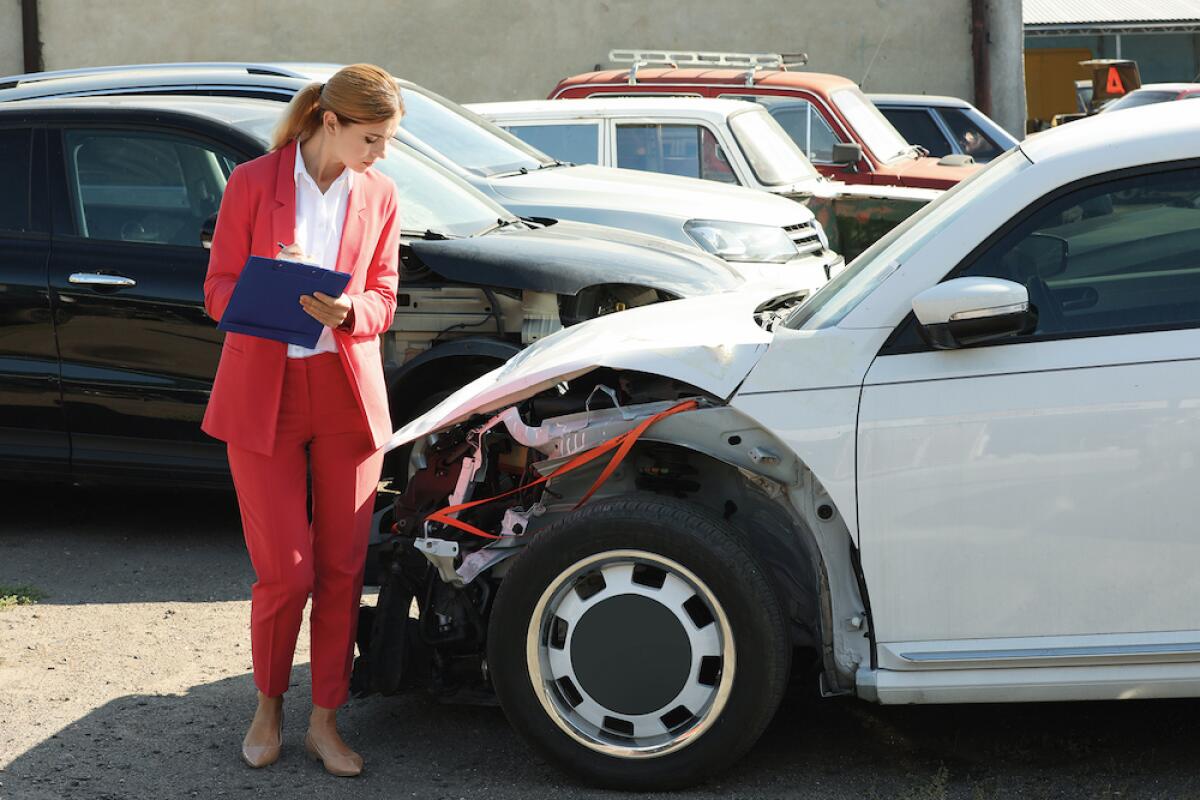Frequently Asked Questions About Filing a Claim

- Share via
The California Department of Insurance has share the following responses to frequently asked questions about what happens after an automobile accident.
Q: What happens after I file the claim with my insurance company?
Your insurance company will contact you for detailed information regarding the loss and may take a written or recorded statement. An examination under oath might be requested. Other drivers and witnesses may also be contacted. If you have medical payments or an uninsured motorist claim, you must provide documentation of your loss (injuries, medical expenses, wages, etc.).
Q: What should I do if the insurance company does not contact me?
A claim representative should contact you within a reasonable period of time after you report the loss. However, under certain circumstances, the insurance company can take up to 15 days to contact you. If you do not hear from anyone, call your agent or insurance company for assistance. If they are not responsive, contact the Department of Insurance.
Q: How does the insurance company evaluate vehicle damage?
An adjuster or appraiser inspects the vehicle damage, then writes an estimate. If further damage is found during repairs, the shop will contact the insurer to get approval for the additional cost, though the adjuster may reinspect the vehicle. If the damage is relatively minor, the company may instead ask you to submit competitive repair estimates. Remember, it is your responsibility and authorize the shop to repair your vehicle once you are satisfied with the final estimate.
Q: What will the company pay on a physical damage claim under a standard auto policy?
Generally, the company will pay the lesser of the following:
• The amount necessary to repair the vehicle or
• The actual cash value (ACV) of the vehicle
Read your policy to determine what is covered. Pay particular attention to exclusions and limitations. For example, there is usually no or limited coverage for stereo equipment or tires and wheels unless it is Original Equipment installed by the automobile manufacturer (OEM). Additional premium coverage is usually available for aftermarket items.
Q: What is actual cash value (ACV)?
Actual Cash Value - Unless otherwise defined in the policy, actual cash value in California means fair market value. This is the dollar amount that a prospective buyer and seller are willing to pay. They must behave in their own best interest and free of undue pressure to transact.
Q: What is an appraisal provision?
Most standard policies contain an appraisal provision, which can be helpful in the event there is a dispute regarding the amount being offered by the insurance company on a total loss settlement of your vehicle. Under this provision, either party can demand an appraisal from a competent appraiser. If the appraisers cannot reach a mutually agreed amount, their differences are submitted to a neutral umpire. The final amount is binding. Each party pays its own appraiser; the umpire fee is shared.
Q: How is the check or draft prepared?
The check can be issued in the name of the insured and any lienholder, such as a bank or finance company. If the vehicle is deemed repairable, the company may also include the repair facility as a payee.
Q: What is the salvage value?
This is the remaining value of your damaged vehicle if your vehicle is determined to be a total loss, usually determined through bids from salvage buyers. The company may sell the salvage to the highest bidder, though it is not obligated to do so. If you decide to keep the damaged vehicle, the highest salvage bid may be deducted from your settlement. If you retain possession of the vehicle, it is your responsibility to file a salvage certificate with the Department of Motor Vehicles (DMV).
Q: What is subrogation?
Subrogation is the right of the insurance company to recover from a third party the amount of damages it paid to you. For example, if another party is at fault in an accident that damages your car, and you have a collision claim, your company will ask the other party to reimburse the money it paid on your claim. The policy requires your cooperation with the company’s subrogation efforts - you cannot interfere in the company’s right to recovery, like signing an agreement releasing the other party in exchange for payment of your deductible.
Q: Is the insurance company required to help me recover my deductible?
Yes and no. The insurance company must advise you if they intend to pursue subrogation. If they do, they are required to include your deductible as a part of the process. However, if the company does not pursue subrogation, they must inform you so that you may pursue your deductible on your own. If successful, most companies will reimburse you. For example, if 100% of the paid claim is recovered, you will receive 100% of your deductible; if the recovery is 65%, you will receive 65% of your deductible. Any expenses (e.g., legal fees incurred by the company in its recovery efforts) will be apportioned between the company and you if recovery is made.
Q: Is the car covered outside of California?
Most policies provide coverage in other states, territories, and Canada. However, most policies do not provide coverage in Mexico, so if you plan to drive your car there, it’s wise to buy that coverage separately.
Information for this article was provided by the California Department of Insurance, which is the state agency that regulates the insurance industry. It also works to protect the rights of insurance consumers. Learn more at insurance.ca.gov.